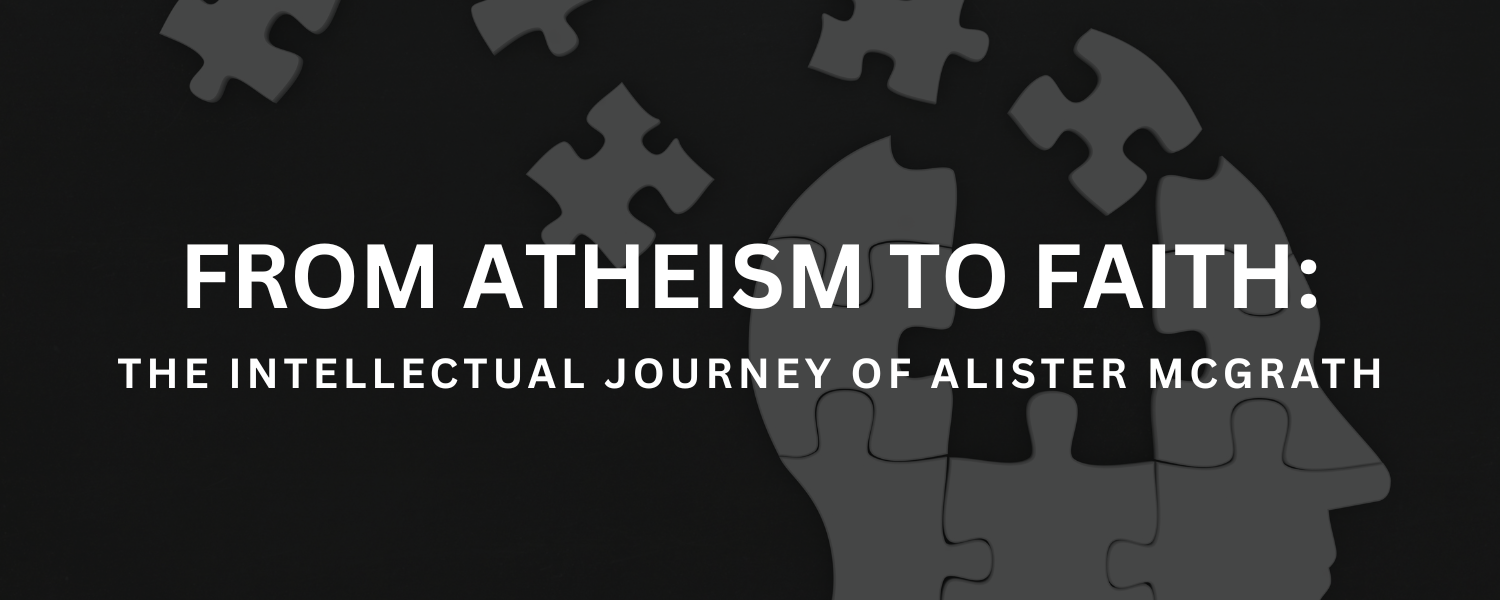From Atheism to Faith: The Intellectual Journey of Alister McGrath

Alister McGrath didn’t stumble into Christianity through emotion or crisis—he reasoned his way there. Born in Northern Ireland in 1953, McGrath began his academic life as a scientist, studying chemistry at Oxford. A brilliant scholar, he would go on to earn not one, but three PhDs from Oxford—in science, theology, and intellectual history. Today, he’s a leading voice in the conversation between faith and reason, a professor at Oxford, and the author of more than fifty books.
But McGrath didn’t always believe. In fact, he was once a passionate atheist.
As a teenager, McGrath embraced atheism with confidence. Science, he believed, had rendered belief in God obsolete. Religion seemed irrational—an emotional crutch for people unwilling to face a godless universe. He also leaned into Marxism, which gave his worldview a seemingly solid intellectual and moral framework.
That certainty began to erode at Oxford. McGrath noticed something unsettling: many of the scientists he respected were Christians. That clashed with the narrative he had absorbed—that science and faith were fundamentally opposed. If these brilliant minds saw no contradiction between scientific rigor and belief in God, maybe his assumptions needed reexamination.
He began to explore Christianity not emotionally, but intellectually. One key turning point: recognizing that atheism itself rested on a belief—a claim that couldn’t be proven. No one can demonstrate with certainty that God does not exist. In that sense, atheism wasn’t the neutral “default” position he had assumed—it was a worldview with its own unprovable foundations.
McGrath also came to see the limits of science. Science is a powerful tool for explaining how the physical world works, but it can’t answer deeper questions: Why is there something rather than nothing? Why does the universe seem finely tuned for life? Why do humans care about meaning, beauty, justice, or morality—things that can’t be measured in a lab?
In Christianity, McGrath found a worldview that engaged both reason and wonder. It offered not just an explanation for the structure of the universe, but also for the human hunger for purpose. His conversion wasn’t a leap in the dark, but a step into what he saw as a more coherent, comprehensive understanding of reality.
Since then, McGrath has become a leading voice in defending the intellectual credibility of Christianity. In books like The Dawkins Delusion? and A Scientific Theology, he challenges the narrative that faith is irrational or anti-scientific. He argues that Christianity actually laid the intellectual foundations that made modern science possible—by teaching that the universe is orderly, knowable, and worth studying.

McGrath’s story matters because he speaks both languages—faith and science. For those who feel trapped between the two, he shows there’s a third way: not conflict, but conversation.
If you’re skeptical, ask yourself:
- Is it possible that atheism also involves assumptions—beliefs that can’t be scientifically proven?
- Could it be that science and faith are addressing different kinds of questions—one about mechanics, the other about meaning?
Want to explore further?
Start with The Dawkins Delusion? by Alister McGrath, or Mere Christianity by C.S. Lewis. Or simply ask yourself: What worldview best explains the world as I actually experience it—both the rational and the relational, the physical and the moral?
You don’t have to suspend reason to consider Christianity. In fact, you might find it’s the most reasonable place to begin.
Be the first to comment